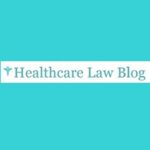Provider Chosen by Patient From Brochures Given by Physician is a Prohibited Referral Under Anti-Kickback Statute
While a physician’s direct referral to a patient of a certain provider is the traditional definition of a “referral” prohibited by the Anti-Kickback Statue, the federal Seventh Circuit Court of Appeals recently found a prohibited “referral” in an instance where a physician merely authorized services despite providing patients with 10-20 brochures for various service providers and allowing the patient the decision to choose a service provider. In light of the court’s decision, physicians and practice groups should reinsure that their referrals, even indirect referrals in which the patient chooses a service provider from a wide variety of options, do not run afoul of the broad definition of a prohibited “referral.”
The Seventh Circuit importantly held last month that a physician’s authorization for a service which was reimbursable by Medicare — specifically, certification for home health care chosen by a patient — was a prohibited “referral” under the Anti-Kickback Statute.[1] See 42 U.S.C.A. § 1320a-7b et seq.
The Seventh Circuit acknowledged that directing a patient to a particular provider is one common usage of the term “referring,” however, and more expansively, the court also determined that “referral” also is commonly used to describe a physician’s authorization of care, even if the patient independently chooses the provider to deliver that care. Of note, the Seventh Circuit determined that Congress intended for the preclusion of both the former and latter “referrals” under the Anti-Kickback Statute.
By way of background, after a significant decline in business, the court found that the Grand Home Health Care began offering to pay doctors, including a Dr. Patel, for Medicare referrals on a per-patient basis. Under such a scheme, the Seventh Circuit noted that Grand’s owners would meet with Dr. Patel monthly to have him sign Form CMS-485 authorizations and that he was paid $400.00 for each new admission to Grand and $300.00 for each recertification.
In 2011, the government began investigating Grand Home Health Care for health care fraud. It subsequently indicted Grand’s owners and Dr. Patel on numerous counts, and following a bench trial, the district court found Dr. Patel guilty of violating the Anti-Kickback Statute. Dr. Patel was sentenced to serve eight months’ imprisonment and 200 hours of community service, and was required to forfeit $31,900.00 of kickback payments.
Notably, the Seventh Circuit found a “referral” despite several apparently mitigating factors in that 1) only a minority of Dr. Patel’s patients selected Grand as their home health care provider, 2) there was no dispute that the home care services were necessary, and that 3) Dr. Patel did not personally discuss the choice of providers with patients — his medical assistant gave patients a substantial variety of provider brochures, including Grand’s, from which the patient was ultimately able to choose a service provider.
While Dr. Patel vociferously argued that to “refer” under the Anti-Kickback Statute meant to personally direct to a patient to seek care from a particular provider, the panel of the Seventh Circuit disagreed, finding “referral” to be much broader, as necessary to carry out the Anti-Kickback Statute’s purpose, “to prevent Medicare and Medicaid fraud.”
Moreover, even as the home health care was apparently medically necessary in this case, the court held that “the danger of fraud at the certification and recertification stages is quite clear. At the certification stage, a physician could refuse to certify a patient to a patient-chosen provider unless the provider paid the physician a kickback. This behavior could increase the cost of care. It could also contravene the second purpose of the Anti-Kickback Statute—protection of patient choice—by interfering with the patient’s choice if the selected provider refused to pay.” Again, the Seventh Circuit found this was the type of conduct Congress intended to criminalize in the Anti-Kickback Statute.
Given the Seventh Circuit’s recent ruling, again, physicians and practice groups should ensure that their referrals, even indirect referrals where patients choose the service provider, do not run afoul of the broadening definition of a prohibited “referral” under the Anti-Kickback Statute.
[1] United States v. Patel, 2015 U.S. App. LEXIS 2099 (7th Cir. Ill. Feb. 10, 2015).
Questions regarding this article may be sent to Publications@Capehart.com.





Connect with Capehart Scatchard